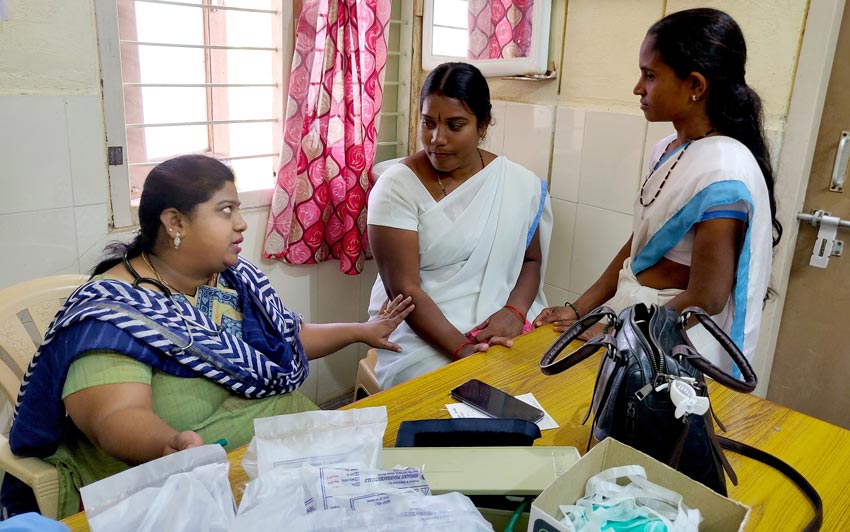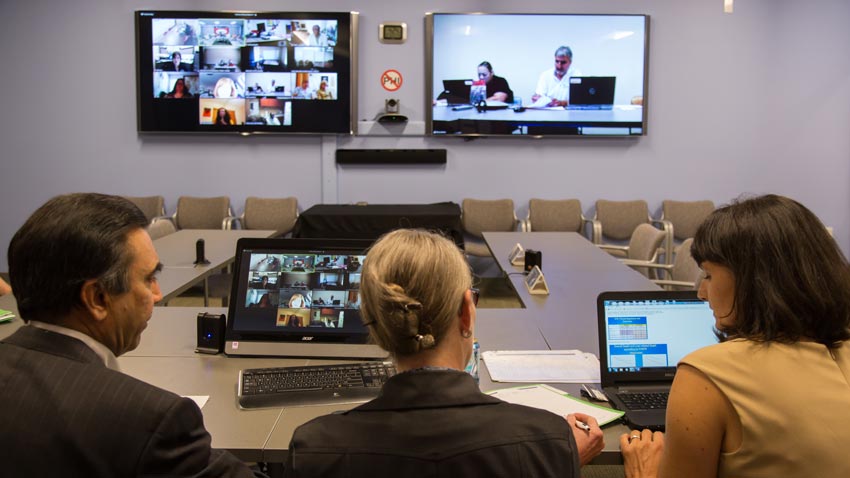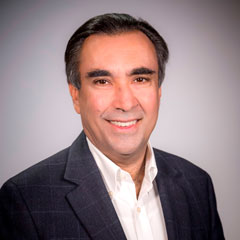Dr. Sanjeev Arora, Founder and Director of Project ECHO shares how it brings specialist medical knowledge to the communities that need it most.
I am a liver specialist at University of New Mexico in Albuquerque. One afternoon 18 years ago, I walked into my clinic and met a 43-year-old woman who had driven five hours with her two children seeking help. She was diagnosed with hepatitis C eight years earlier. Yet, she was just now seeking treatment.
Her doctor told her that treatment would require her to make at least a dozen trips to Albuquerque over one year, and she could not afford to take the time off work.
Now she was experiencing abdominal pain that interfered with her ability to work, which was why she finally came to see me.
It was too late. She had advanced liver cancer and died five months later. The right knowledge did not exist in the right place at the right time to save her life.
At the time, more than 28,000 New Mexicans were diagnosed with hepatitis C, but less than five percent had received treatment. My clinic had an eight-month waiting list, and many of my patients lived hundreds of miles away. This woman’s story was repeated hundreds of times a year.
That is why I started Project ECHO (Extension for Community Healthcare Outcomes) in 2003 to bring specialist medical knowledge to the communities that need it most. How? By virtually connecting providers in those communities with specialists at medical centers to share knowledge and best practices.

Dr. Sree Devi Merum with two rural community health workers who, through an ECHO program, gained skills needed to successfully screen hundreds of women for cervical cancer.
Project ECHO works like this:
Teams of experts at regional medical centers—called “hubs”—use one-to-many videoconferencing to engage with local healthcare providers—the “spokes”—in weekly case-based learning and tele-mentoring. Hub and spokes learn from each another.
This is the heart of the ECHO model. We call it “all teach, all learn.” Starting in 2003, my team and I launched 21 centers of excellence, run by primary care clinicians, to treat hepatitis C in New Mexico’s rural communities. Soon the clinicians had become experts, able to treat their own patients. The wait in my clinic fell from eight months to two weeks.
In 2011, we published a study in the New England Journal of Medicine showing that ECHO-trained primary care providers could treat hepatitis C as effectively as specialists at University of New Mexico. Specialists from around the world reached out to us asking how they could use the ECHO model to democratize their knowledge and support their communities.
Each month, dozens of organizations flew to New Mexico to be trained on the ECHO model. As our trainings grew more and more popular, we knew we needed to expand the opportunities for specialists around the world to join our growing community.
In 2008, we launched a branch office in New Delhi, and by working with government agencies we have begun to expand the acceptance and adoption of the ECHO model as integral to healthcare training across India. In Africa, we have partnered with governments, the WHO African Region office, Africa CDC, and other NGOs to provide care to underserved populations.

Dr. Sanjeev Arora, ECHO Founder/Director, with the Hepatitis C ECHO hub team at the University of New Mexico ECHO Institute.
Now partners in more than 40 countries use the ECHO model for 70-plus conditions and topics. More than 250 peer-reviewed articles demonstrate ECHO’s impact on providers, patients, and populations. Over the past six months, hundreds of thousands of providers in 158 countries have been tele-mentored on COVID-19 preparedness and response through ECHO programs.
Despite our growing community, we know that millions die because, like my patient 18 years ago, the right knowledge does not exist in the right place at the right time.
Our mission is to support care teams around the world as they care for their patients. For our 100&Change proposal, we are focused on meeting the challenge of the moment by democratizing expertise in the fight against COVID-19 and in expanding ECHO’s communities of practice throughout Africa and building our networks in India.




